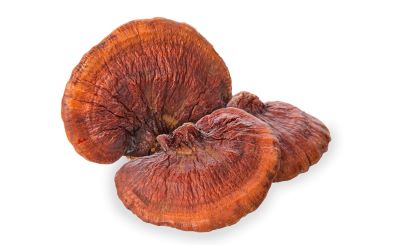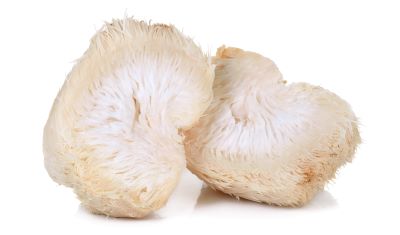Natural remedies for depression: Mycotherapeutic measures can help
Although depression is widespread, those affected often feel alone. But with around 350 million people affected worldwide, they are not. Rather, they suffer from what will soon be the second most common disease. However, there are some good ways to counteract this disease. The focus is always on medical care, medication and psychotherapy.
In addition, in many cases vital mushrooms are a good way to support orthodox medicine and promote recovery. Read more here about the signs of depression, how it develops and what measures you can take in the event of an illness.
What are the symptoms of depression? 
When talking about depression, many people first think of dejection, exhaustion and social withdrawal. This describes the core symptoms of depression quite well. However, this mental illness is accompanied by a number of other problems that affect both the psyche and the body: Those affected feel helpless, overwhelmed and exhausted, without being able to pinpoint the cause. They can neither see anything good in their current life situation, nor do they have high hopes for the future. Life seems almost meaningless to them. Some people feel nothing at all during a depressive phase. A feeling of inner emptiness spreads.
Outsiders sometimes observe that the depressed person’s gestures and facial expressions become impoverished. Speech becomes quiet and monotonous. At the same time, those affected suffer from feelings of guilt and inferiority. They constantly reproach themselves, feel guilty and unloved. In the worst case, this results in self-hatred, which, together with the feeling of meaninglessness of existence, leads to thoughts towards suicide. Even friends or formerly beloved leisure activities can do little to counteract this. Most depressed people withdraw from their social life anyway.
Depression is also so dramatic because it affects all areas of the sufferer’s life. They not only depress the mood, but also make both private and working life sometimes unsolvable tasks. Some sufferers report an inner restlessness, the incessant feeling of being under tension. The consequences are impatience and problems with concentration, which can extend to memory lapses. Experts refer to this as “brain fog”. It is hardly possible to think rationally in such a situation, which is why decisions are so difficult. Natural remedies for depression can have a calming effect at this point and help those affected to think clearly again.
More than just dejection
Many people are aware that depression is associated with dejection and withdrawal. What is less well known is that symptoms also appear on a physical level.  Psychologists refer to this as “somatisation”. Those affected sometimes suffer from diffuse pain, for example in the back, head or stomach. Dizzy spells and constant fatigue are also typical. In addition, there are sleep disorders in the form of problems falling asleep and staying asleep. Here, too, natural remedies against depression such as vital mushrooms can offer gentle support. Unlike sleeping pills, they are not addictive.
Psychologists refer to this as “somatisation”. Those affected sometimes suffer from diffuse pain, for example in the back, head or stomach. Dizzy spells and constant fatigue are also typical. In addition, there are sleep disorders in the form of problems falling asleep and staying asleep. Here, too, natural remedies against depression such as vital mushrooms can offer gentle support. Unlike sleeping pills, they are not addictive.
Since the brain and intestines are in close exchange with each other via the so-called intestinal-brain axis, symptoms can occur in the gastrointestinal tract. Sometimes depression is accompanied by irritable bowel syndrome, for example. Typical complaints such as constipation or diarrhoea are further aggravated by loss of appetite and cravings. Those affected sometimes report stomach pain or nausea. Ultimately, the symptoms are as varied as the individuals affected.
Along with depression, other mental illnesses such as panic attacks, anxiety and obsessive-compulsive disorders occasionally occur. Here, vital mushrooms, which have a balancing effect on the psyche, can be a helpful accompaniment to psychotherapeutic measures.
The different manifestations of depression
It can happen that someone suffers from the symptoms of depression throughout. Much more common, however, is a phasic course in which periods with depressive symptoms alternate with periods without symptoms. The length, frequency and severity of the individual phases can vary greatly. Some sufferers experience very sharp and rapid fluctuations from being depressed to having no symptoms within a few days. Others remain in a rigidity of sadness and self-reproach for months before they see light on the horizon again. In individual cases, there can even be years between the individual depressive periods.
It is very important to keep in mind the phasic course of depression.  Because in the acute periods, those affected often lack the drive to seek help. In the symptom-free phase, on the other hand, they think that they do not need medical support. But this is exactly the right time to look for therapy. In this way, a new low mood can be alleviated or even prevented. At the same time, natural remedies against depression during the symptom-free periods can help to cushion any renewed deterioration.
Because in the acute periods, those affected often lack the drive to seek help. In the symptom-free phase, on the other hand, they think that they do not need medical support. But this is exactly the right time to look for therapy. In this way, a new low mood can be alleviated or even prevented. At the same time, natural remedies against depression during the symptom-free periods can help to cushion any renewed deterioration.
A special case of depression is bipolar disorder. In this case, the sufferers fluctuate between two extremes: In addition to depressive episodes, they experience so-called “manic” phases. During this time, they are in a very good mood and have the feeling that the world belongs to them. Those affected quickly become overconfident and sometimes buy far more in this state than their savings account allows.
Other forms of depression can be traced back to special circumstances in the lives of those affected. For example, postpartum depression occurs in some women because of the hormonal changes after childbirth. Winter depression – as the name suggests – is associated with the dark season and usually improves again in spring. Old people can also suffer from so-called “old-age depression”, which results primarily from the changed life situation in old age.
Who is affected by depression?
As already mentioned at the beginning, depression is a really serious problem worldwide. Among mental illnesses, it is by far the most common.  Unfortunately, children and adolescents are also increasingly affected by depression. Especially for them, it is important to initiate appropriate therapy in time to pave the way for a healthy and fulfilled adult life. Natural remedies against depression are also a valuable supplement to conventional medicine in this age group to support recovery.
Unfortunately, children and adolescents are also increasingly affected by depression. Especially for them, it is important to initiate appropriate therapy in time to pave the way for a healthy and fulfilled adult life. Natural remedies against depression are also a valuable supplement to conventional medicine in this age group to support recovery.
In Germany, around 150,000 depressed people attempt suicide every year. About 10,000 actually die in the process. Against the background of Corona, these data are all the more alarming. During the pandemic, significantly more people fell ill with depression than in previous years. Estimates put the number of people affected worldwide at around 28% more, although the figures are mainly based on data from industrialised countries such as European countries, North America and Australia.
But who is at particularly high risk of developing depression? Basically, women are affected about twice as often as men. In particular, young women with multiple stresses of household, work and caring for small children are at increased risk of developing the disease. The rate among adolescents and young adults rose sharply, especially during the pandemic. In general, however, depression can occur at any age and always requires an individually tailored therapy. Physical health should always be monitored as part of the treatment, as depression is sometimes associated with physical illnesses. Natural remedies for depression taken concomitantly can then also be adapted to the therapy of this underlying disease.
How does depression develop?
Our psyche is extremely complex and the same applies to the development of depression. To date, it has not been comprehensively researched how such an illness develops. But scientists agree that there are always different factors that interact on a biological, psychological and social level.

It is also certain that there is a genetic predisposition to depression. The disease is more common in some families than in others. In addition, the earliest experiences from childhood often play a role. Stressful experiences, traumas and learned destructive thought patterns favour the development of a mental disorder in adulthood. Experts also call such favourable conditions for an illness “vulnerability”.
If a high vulnerability coincides with a stressful life event, depressive symptoms can develop. Such an event can be, for example, the death of a close person, a separation, an accident or an extremely stressful phase at school, university or work. On the other hand, those who lead a calm and harmonious life can remain healthy throughout their lives despite high vulnerability.
Physical factors
The reasons for depression are not only to be found on the genetic and psychological level. Researchers have now found many peculiarities in the bodies of depressed patients that have a connection to the illness. These are vulnerabilities on a physical level. These depression-favouring factors include, for example:
– Imbalances in the neurotransmitter system
– Heart disease (can be cause and consequence)
– Diabetes
– Problems with the adrenals
– Chronic inflammation (e.g. rheumatism)
– Neurodegenerative diseases (Parkinson’s, Alzheimer’s)
– Thyroid dysfunction (e.g. Hashimoto’s)
– Mitochondrial exhaustion
– Accumulation of environmental toxins and neurotoxins (heavy metals, pesticides, phthalates, etc.)
– Certain medications
– HPU
– oxidative stress
– nutrient deficiencies (e.g. B vitamins, vitamin D)
– intestinal diseases (e.g. dysbiosis, leaky gut, inflammation)
– hormonal changes (e.g. menopause, oestrogen dominance)
– histamine excess (e.g. due to diet, dysbiosis)
What happens in the body and brain during depression?
Studies on depressed people show that the illness does not only bring about changes in experience and behaviour. Researchers even found differences in the brain and nerves compared to healthy people.
Changes in the brain
For example, the doctors found that in depressed people, those regions of the brain that are associated with negative emotions and stress are particularly active. The areas for positive emotions, on the other hand, are comparatively inactive. This finding leads to an approach for the therapy of depression in which the formation and differentiation of neurons in a specific area of the brain, the hippocampus, is to be supported.
The importance of neurotransmitters
Furthermore, studies have shown that the levels of certain neurotransmitters in the brain often differ between depressed patients and healthy people. This applies especially to serotonin, dopamine and noradrenaline. These neurotransmitters are of great importance for perception, the reception and processing of information, behaviour and mood.
Scientists also like to refer to serotonin as the “happiness hormone”. The body can produce it itself from the essential amino acid tryptophan. With the help of vitamin B3, folic acid and some other substances, serotonin is mainly (approx. 90 %) synthesised in the intestinal nervous system. Smaller amounts are also produced in the liver, spleen and brain. Serotonin has the following effects on the organism:
– mood
– lifting / antidepressant
– relaxing
– sleep-promoting
– pain-reducing
– motivation-promoting
– appetite-regulating
– regulation of digestion and intestinal function.
In the course of metabolisation, serotonin is further converted to melatonin, the so-called “sleep hormone”. For this reason, a deficiency of serotonin is often accompanied by sleep disorders. Other signs of serotonin deficiency can be concentration and attention problems, chronic exhaustion, anxiety, migraine as well as sensory disturbances. The wonderful thing about vital mushrooms is that they can not only do something about the lack of messenger substances, but can also alleviate the symptoms described.
Starting points for therapy
As the availability of tryptophan is a limiting factor for the synthesis of serotonin, an increased supply can alleviate depressive symptoms. On the other hand, the (excessive) breakdown of tryptophan must also be inhibited. For example, certain messenger substances in the body (cytokines) ensure the increased breakdown of tryptophan. When there is inflammation, there are particularly many cytokines circulating in the organism. This is where various natural remedies against depression, such as the vital mushroom cordyceps, come in.
Another starting point is the splitting of the messenger substances by the enzyme monoaminooxidase (MAO). If this enzyme is inhibited, fewer monoamines such as serotonin, noradrenalin and dopamine are automatically broken down. Their concentration consequently increases. This is where the so-called MAO inhibitors come into play. But the medicinal mushroom cordyceps can also reduce the activity of monoaminooxidase somewhat.
A holistic view of serotonin deficiency
Now the question arises as to how an imbalance of messenger substances can occur in the first place. The limited availability of tryptophan is only one of many factors. First and foremost, stress can also deplete the supply of neurotransmitters. Other causes can be:
– Fructose malabsorption: Free fructose combines with tryptophan in the intestine, which can then no longer be absorbed.
– Vitamin B6 and B3 deficiency
– Zinc and magnesium deficiency
– Insulin resistance
– Cancer
– Chronic latent infections
It is important to emphasise at this point that not all depressions are associated with a serotonin deficiency. There are people who suffer from severe symptoms but have a completely healthy blood level of the neurotransmitter.
How can depression be treated?
The earlier depression is recognised and the sooner appropriate therapy begins, the better the chances of recovery. Unfortunately, those affected sometimes do not even perceive their problem as a serious illness. Even if they are aware of the depression, a lack of drive or feelings of inferiority may keep them from seeing a doctor. It is therefore also important to have a social environment that is aware of the illness and supports the person concerned in seeking help.
If the depression remains untreated, this can mean a continuous worsening of the symptoms. The affected persons are less and less able to lead their lives independently. If, on the other hand, therapy is started, it usually consists of medication and/or psychotherapy.
Drug therapy: antidepressants
We have already shown some approaches to this in connection with the physiological changes in depression. The focus is usually on trying to favourably influence neurotransmitters such as serotonin, noradrenalin and dopamine. According to statistics, antidepressants do not work equally well for all patients. Some feel no improvement at all from taking them.
However, about half of the patients on drug therapy suffer from their side effects. One of the reasons for this is that the drugs have to be taken over a very long period of time to achieve the desired effect. Weight gain is one of the main problems for those affected. It is a burden on the body and the psyche in equal measure.
Natural remedies against depression also usually have to be taken over a long period of time. However, this is not so problematic because they are free of side effects. If you are already taking antidepressants, however, you should watch out for possible interactions. With vital mushrooms, such are not known. They rather still lead to pleasant side effects that improve the state of health in areas beyond the psyche. Nevertheless, natural remedies should never replace the measures prescribed by the doctor. Rather, they should support an ongoing therapy. If necessary, they may even alleviate the side effects a little.
Psychotherapy
In addition to medication, psychotherapeutic measures are also used for depression. They are very important and support those affected in their recovery. The exact therapy is very individual. In addition to the causes of the depression, it also takes into account the specific life circumstances and other factors in order to provide the most adequate help possible. There are also various therapy methods that differ in their view of the illness.
psychotherapeutic measures are also used for depression. They are very important and support those affected in their recovery. The exact therapy is very individual. In addition to the causes of the depression, it also takes into account the specific life circumstances and other factors in order to provide the most adequate help possible. There are also various therapy methods that differ in their view of the illness.
Complementary to psychotherapy, naturopathy has its own helpful remedies. They can help to relax, strengthen the drive and alleviate low moods. In the case of winter depression, for example, the administration of vitamin D can have a beneficial effect. In this context, it is important that those affected have their thyroid function checked. Now you can find out how vital mushrooms can also be a useful accompaniment to conventional medical measures.
How do vital mushrooms help with depression?
We have already shown the possibilities and advantages of medicinal mushrooms in various places. Within natural remedies, they are a good way to promote the healing process. They can alleviate the symptoms of depression, have a positive effect on the neurotransmitter balance and counteract imbalances in the body. In Asia, medicinal mushrooms have therefore long been used as a complement to conventional medicine. The
first choice is always the vital mushrooms Cordyceps, Hericium and Reishi.
Medicinal mushrooms strengthen various organs such as the liver, kidneys and intestines. They therefore support health in general, but can also provide more vitality and energy. With their help, you can get metabolic disorders under control. Also of great importance is their anti-inflammatory mode of action, as recent research indicates that depression is a neuroinflammatory disease. If there is an underlying toxic burden, vital mushrooms can also bring about improvements. This is because they bind environmental toxins as well as other harmful substances, activate the excretory organs and also have an antioxidant effect.
Which vital mushrooms help with depression?
Cordyceps
The central effect of cordyceps on depressed people is generally a strengthening one. If it is taken over a longer period of time, the persons concerned feel physically and mentally stronger. This is due to its ingredient cordycepin. It strengthens the mitochondria, enabling them to provide more energy. The adenosine also improves blood circulation.
Cordyceps also harmonises the hormone system. A balance of the sex hormones is extremely important for our mental health. Cordyceps helps to create more harmony by regulating the release of oestrogen, progesterone and testosterone. This ability of the vital mushroom is a great help during the menopause, for example. Since the menopause itself is a risk factor for depression, cordyceps can be used very well as a preventive measure. Cordyceps also has a strong influence on the adrenal cortex. There it regulates the release of the “stress hormone” cortisol.
A balance of the sex hormones is extremely important for our mental health. Cordyceps helps to create more harmony by regulating the release of oestrogen, progesterone and testosterone. This ability of the vital mushroom is a great help during the menopause, for example. Since the menopause itself is a risk factor for depression, cordyceps can be used very well as a preventive measure. Cordyceps also has a strong influence on the adrenal cortex. There it regulates the release of the “stress hormone” cortisol.
Importance of cordycepin
Studies have shown that cordycepin has a positive influence on the neurotransmitter system. In one study, scientists regularly administered cordycepin to depressed mice over a long period of time. Because of this one substance alone, the mice became more active over time and turned more to positive stimuli. On a physiological level, it was shown that the concentration of the cytokines TNF-alpha and interleukin 6 in the hippocampus decreased. At the same time, the nerve growth factor BDNF increased. Cordycepin thus seems to primarily counteract the changes in the brain and the inflammatory processes associated with depression.
Other health-promoting properties
In addition to the specific effects mentioned at the level of the nervous system, the substances from cordyceps
can alleviate depression in many other ways. For example, the vital mushroom strengthens the kidneys and liver, which are so important for detoxification. It supports the removal of harmful substances from the organism and at the same time has an anti-inflammatory effect. It is also rich in antioxidants such as superoxide dismutase and glutathione, which means a certain protection of all body cells against free radicals. Finally, cordyceps has a neuroprotective effect and a regulating influence on blood sugar.
Reishi
For centuries, alternative medicine has used the reishi to alleviate vegetative symptoms that can occur together with depression. It is able to alleviate stress and the physical symptoms that accompany it, such as palpitations, insomnia, sweating and gastrointestinal complaints. It is also said to get the emotions flowing. Since depression sometimes conceals pent-up anger and aggression, this effect can bring sufferers a little closer to recovery.
Reishi is also helpful as a natural remedy for depression because it promotes health in a holistic way. Its polysaccharides, for example, support a healthy intestinal flora, which ultimately has a positive effect on the synthesis of serotonin and GABA. By also strengthening the liver and supporting it in its work, it ensures smooth detoxification. It promotes the binding and elimination of toxins in many ways, including by strengthening the kidneys.
as a natural remedy for depression because it promotes health in a holistic way. Its polysaccharides, for example, support a healthy intestinal flora, which ultimately has a positive effect on the synthesis of serotonin and GABA. By also strengthening the liver and supporting it in its work, it ensures smooth detoxification. It promotes the binding and elimination of toxins in many ways, including by strengthening the kidneys.
Other useful properties of reishi when used as a natural remedy for depression include …
– improvement of the oxygen saturation of the blood
– stimulation of the metabolism
– antihistamine effect
– antioxidant effect
– immune modulation: prevention of infections and autoimmune diseases
– anti-inflammatory effect
– pain relief
Hericium
Among the vital mushrooms, Hericium stands out because of its nerve-strengthening effect. The erinacins and hericenones contained in it stimulate both the nerve growth factor NGF and the brain-derived neutrophic factor (BDNF). In plain language, this means a chance for the brain to form new nerves and achieve greater neuroplasticity. In addition, Hericium supports myelin formation. All this counteracts the altered activity of the brain of patients with depression. In particular, scientists hope that the strengthening of the nerves in the hippocampus will significantly alleviate the symptoms.
As a result of its nerve-strengthening effect, the following changes can be observed in people who take Hericium regularly over a longer period of time:
– improvement of concentration
– improvement of memory
– better mood
– less anxiety
– stress reduction
– improvement of sleep.
Supporting the gut
The gut and brain are very closely related through the gut-brain axis. For example, a large part of the messenger substances that are important for the central nervous system are produced in the intestine. In the case of serotonin, this proportion is around 90 %! Therefore, the strengthening effect of Hericium on the “gut brain” should not be neglected as a natural remedy for depression: It generally supports the regeneration of the mucous membranes in the entire gastrointestinal tract, which counteracts inflammation and diseases such as irritable bowel syndrome or leaky gut. A healthy mucosa can better absorb important nutrients and food intolerances are less likely. Through its prebiotic ingredients such as polysaccharides and chitin, the vital mushroom also promotes a healthy intestinal flora.
Findings from research
Scientists are increasingly looking into the mechanisms of action of natural remedies such as vital mushrooms. To better understand the antidepressant effect of Hericium, they exposed mice to strong stress in a study. As a result, the concentration of neurotransmitters decreased noticeably. The administration of a highly concentrated Hericium extract alone increased the levels of serotonin, noradrenalin and dopamine in the mice.
In the meantime, there have also been initial studies on humans that have yielded promising results. For example, a group of women in menopause regularly took Hericium powder. After a certain period of time, they reported less negative mood, anxiety and frustration overall than a comparison group of women who received a placebo. Similarly, a group of overweight people took Hericium capsules for eight weeks. At the end of the study period, the study participants slept better, felt less anxiety and their mood had also improved overall.
Finally, the positive effect of Hericium is probably also due to its anti-inflammatory effects. Scientists were able to show that taking Hericium reduces the concentration of the messenger substances IL-6, TNF-Alpha and NF-KappaB.
Pleurotus
The vital mushroom Pleurotus is often given as a supplement to Hericium because it also has a positive effect on the intestinal flora. Its chitin and fibres also bind toxins in the intestine. Its use in depression is therefore primarily indicated when there is a disturbed intestinal flora or a burden of harmful substances. If there is a deficiency of B vitamins, pleurotus can also improve absorption.
ABM and Maitake
Mycologists recommend ABM if the depression is related to an allergy or autoimmune disease. It helps the immune system to regain its balance. Together with maitake, it can also provide good help for depression caused by diabetes. Both vital mushrooms have a regulating effect on the blood sugar level. This makes them an effective natural remedy against type 2 diabetes.
Their positive influence on fat metabolism also benefits people who suffer from metabolic syndrome. Fatty tissue, especially in the abdominal area, is usually associated with chronic inflammation, which in turn is a risk factor for depression. Finally, researchers assume that maitake even has an antidepressant effect directly via the dectin-1 receptor.
Where do I buy vital mushrooms?
We recommend that you to take only medicinal mushrooms from German organic cultivation. Because only with these high quality standards can you be sure that the medicinal mushrooms have not come into contact with toxins from the soil or pesticides. After all, mushrooms absorb environmentally harmful substances and pass them on directly to their consumers.
In addition, powder has proven itself many times over as a form of administration. It is important here that it is made from the whole mushroom and that it has been dried at less than 40° Celsius. Higher temperatures would destroy valuable ingredients. Since even dry powder does not keep indefinitely and possible mould is hardly recognisable on it, capsules are the safest form of intake.
Please consult your therapist before use!






